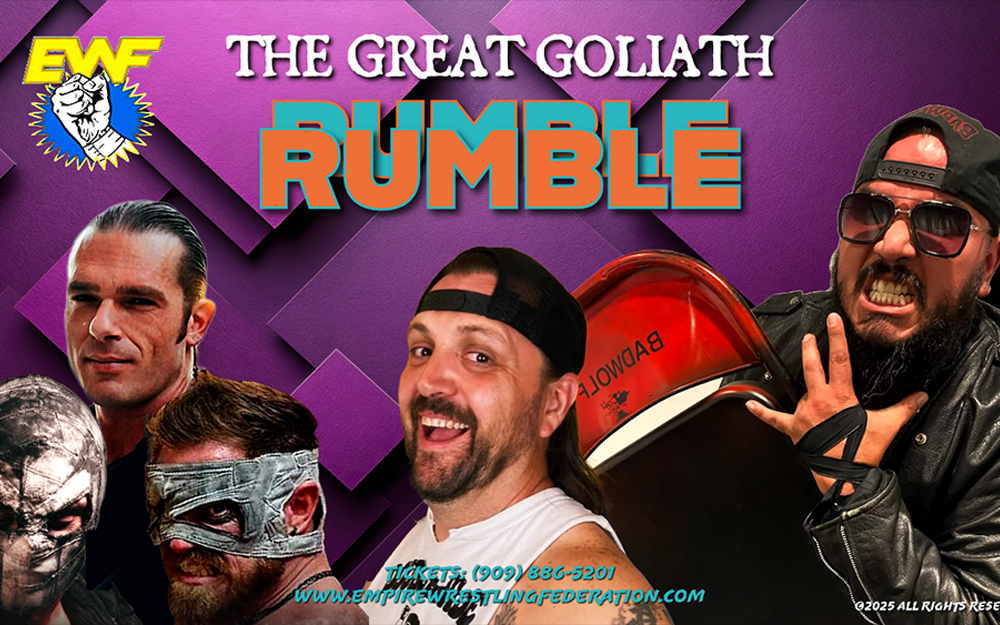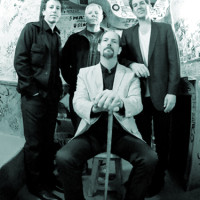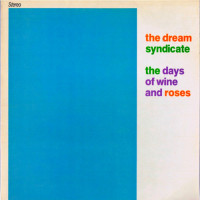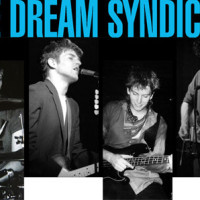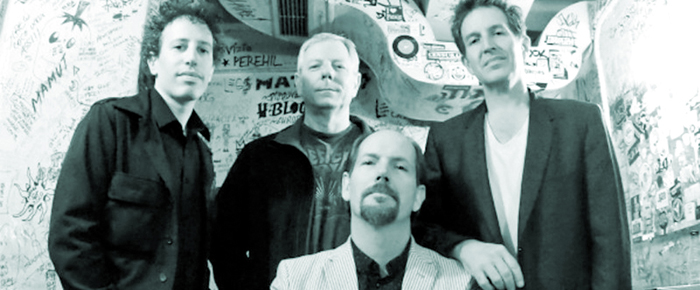
By Eleni P. Austin
Anyone who came of age in Los Angeles in the late 70s/early 80s experienced a musical renaissance that was mostly underground. Of course Punk Rock was invented in the bowels of New York and exploded in Great Britain, but it thrived in L.A. Maybe all that smoggy sunshine provided an energizing boost of vitamin D.
Pioneering Punk bands like X, the Weirdos, the Plugz, Fear and the Germs began making names for themselves in unlikely venues like the Masque and Madam Wong’s. Some bands were inspired by the D.I.Y. ethos of Punk, less so by the nihilistic style. So they began creating new sounds.
As the ‘80s began, the music scene was as sprawling as the city itself. From the skinny tie Power Pop of the Knack, the Nerves, the Plimsouls and 20/20, the Roots-Rock of The Blasters and Los Lobos, the Blues/Jazz/Psychobilly mash-up of the Flesh Eaters, the thrashy R&B of Top Jimmy & The Rhythm Pigs to the Post-Punk/Cow-Punk of the Gun Club.
Diving head first into this sweaty musical mosh pit were four bands that became loosely known as the Paisley Underground. The Bangs (later the Bangles), the Salvation Army, who, following threat of legal action from the venerable charity organization became the Three O’Clock, the Rain Parade and the Dream Syndicate, all took their musical cues from ‘60s Psychedelia and Garage Rock.
While the music of the Bangles, Rain Parade and the Three O’Clock hewed more closely to sunshiny antecedents like Love, the Merry- Go-Round and the Byrds, the Dream Syndicate’s inspirations took on a darker hue. Nico, the Velvet Underground and Neil Young’s backing band, Crazy Horse, were early touchstones.
The Dream Syndicate was the brain child of Steve Wynn. Born and raised in Los Angeles, he formed a couple of bands as an under-grad studying at UC Davis. The Suspects, which featured future Syndicate bass player, Kendra Smith, and 15 Minutes with Russ Tolman and Gavin Blair. They would go on to found the critically acclaimed San Francisco band, True West.
An English major, Wynn returned to Los Angeles, along with Smith to finish his college studies at UCLA. It was there that he met two more English majors, guitarist Karl Precoda and drummer Dennis Duck. All three clicked musically. When Kendra Smith came on board, The Dream Syndicate was born.
By February 1982, the band performed their first show at Club Lingerie in Hollywood. A self-released, four song EP quickly followed. The band signed with the indie label, Slash, and their first full-length, The Days Of Wine And Roses appeared later that year.
The Dream Syndicate had a mercurial seven year run. There were myriad personnel changes, Kendra Smith left after their debut and Karl Precoda made it through the second LP, Medicine Show and another EP, This Is Not The New Dream Syndicate Album…Live, before giving notice. Wynn and Duck soldiered on with other players, recording two more studio albums, Out Of The Grey and Ghost Stories. A final live recording, Live At Raji’s served as their epitaph.
During their heyday, The Dream Syndicate never sky-rocketed up the charts. Really the only Paisley band to manage that feat was the Bangles. But the cognoscenti understood the power of the band, and so did future generations.
Roxy Music-ian and producer, Brian Eno famously quipped that the first Velvet Underground album sold less than 30,000 copies but every person who bought the album started their own band. That applies to The Dream Syndicate as well. Several groups, (Pixies, Nirvana and American Music Club) have fallen under their spell.
Unfortunately, most of their catalog has been out of print for years. Luckily the folks at Omnivore Records have just re-issued the Dream Syndicate’s full-length debut, The Days Of Wine And Roses.
Just as Rhino Records did in the ‘80s, Omnivore is a label that painstakingly re-issues classics, curating under-appreciated gems and worthy music that has seemed to slip through the cracks. The label was founded by music industry veterans. Cheryl Pawelski, Brad Rosenberger, Greg Allen and Dutch Gamblitt, are music aficionados first, executives second. That’s a rare combination.
“Tell Me When It’s Over” opens the record with an authoritative drum crack. The song creates a template for the whole album. Grinding rhythm guitar, stutter-stop drums and roiling bass lines provide ballast for Precoda’s meandering lead guitar riffs. Steve Wynn’s vocals are a perfect distillation of twentysomething ennui; “and I really don’t know,” he admits, “cause I don’t want to know, tell me when it’s over.”
The next three tracks kick out the jams in all the right ways. Feedback squeal signals the beginning of “Definitely Clean.” The minimalist melody is fueled by a manic boing-ing backbeat and rubbery bass lines. Guitars skitter and careen in concentric circles Wynn demands some honest answers all the while protesting, “I’m not worried ‘bout you, why should I be?”
Ominous “Boris The Spider” bass scales propel “That’s What You Always Say.” Slashing power chords overlap with slithery rhythm guitar riffs and a punishing beat. Nearly a minute elapses before the vocals kick in. Wynn launches into a cryptic rant over a lover’s suspected infidelity. Precoda’s dissonant solo, drenched in feedback, underscores the singer’s anger and betrayal.
On “Then She Remembers” locomotive rhythms and squalling guitars mirror a desperate scenario. The lyrics offer opaque details of physical exploitation at the hands of an abusive father; “Textbook case of a mistreated daughter, who’s been told of some better options/She agrees but she can’t forget her father.”
Steve Wynn relinquishes the spotlight on a couple of tracks, “Halloween” and “Too Little, Too Late.” The former is a Karl Precoda composition. Tentative guitar chords swirl, as the instrumentation slowly builds into a mid-tempo groove. Guitar textures pivot, buzzing like a stoned bee one second, scaling back to delicate arpeggios the next. Spooky shards of feedback collide with wobbly, theremin-esque notes. Wynn’s vocals weave in and out, appropriately forboding and sepulchral. The result is haunting and spectral.
Kendra Smith takes the reins on the latter. Dreamy and contemplative, it’s a conscious break from the frenetic pace of the rest of the LP. Smith’s blasé vocals channel the same sort of Teutonic detachment that made Nico such a provocative chanteuse. Precoda’s subtle slide notes bend and ache, echoing the lyrics’ sadness and despair.
Other interesting tracks include “When You Smile.” Feedback screeches and curdles for nearly a minute before Wynn begins singing and adding his gunslinger rhythm guitar flourishes. Duck and Smith’s tandem timekeeping kick in, locking into a loping, see-saw rhythm.
“Until Lately” is a dizzying 180 degree sea change. Rumbling bass lines connect with a slinky hi-hat beat and Wynn’s laconic vocals. It’s nervous Jazz until Precoda’s guitar leaps into the fray, adding fractious guitar pyrotechnics along with folksy harmonica runs. Fittingly, the song shuffles to conclusion, collapsing into a sweaty shambolic heap.
The album closes with the epic title cut. A jittery, caffeinated backbeat and rumbling bass lines anchor the proceedings. Precoda pulls out all the stops, his guitar alternately surfs, scorches, twangs, jangles and wah-wahs, it’s a tour-de-force. Wynn’s vocals match the instrumental intensity as he sketches out a pulp fiction narrative.
Back in 1982, that is where the Dream Syndicate left the listener, but Omnivore being Omnivore, the label had to include some special extras. Dennis Duck discovered a lost rehearsal cassette and the label did a little sonic clean-up. These songs are presented here for the first time ever.
Two of the tracks, “Outside The Dream Syndicate” and “Like Mary” were recorded in early 1982, right after the band formed. The remaining tracks, “Is It Rolling, Bob?” “A Reason,” “Still Holding Onto You” and “Armed With An Empty Gun,” came together in December, 1982, and offers a fascinating glimpse at what “Medicine Show” might have sounded like had the original line-up stayed remained intact.
It’s astonishing to note that The Days Of Wine And Roses was recorded in three eight hour sessions that lasted from 12am to 8am, taking place in between the band member’s regular jobs. This nearly perfect album was produced by Chris D. (ne’ Desjardins), the Punk Rock Poet and visionary front man for seminal L.A. bands like the Flesh Eaters and The Divine Horseman.
By parsing the past, The Dream Syndicate predicted the future. They rarely get the credit, but critical darlings like Parquet Courts and Ought, crib liberally from The Dream Syndicate playbook. 33 years later, The Days Of Wine And Roses and Dream Syndicate are still head of the times.

























